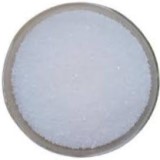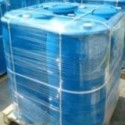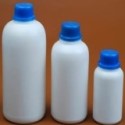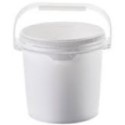 |
Saccharin Sodium Anhydrous Dihydrate USP FCC Food Grade Supplier Exporter Manufacturers' Representative |
Email: info@ammol.org |
Call Toll Free +1-855-552-6665 |
Quick Links to Products: Calcium Saccharin | Dihydroxyaluminum Sodium Carbonate | Calcium Disodium EDTA | Carmellose Sodium | Montelukast Sodium | Pyruvic Acid | Resorcinol | Selenious Acid | Selenium Metal | Selenium Sulfide | L-selenomethionine | Selenium Dioxide | Saccharin Insoluble | Saccharin Sodium Suppliers | Soda Lime | Sodium Bromate | Sodium Cyclamate | Sodium Formate | Sodium Lactobionate | Sodium Selenite | Sodium Tartrate | Sucralose | Taurine | and more -- |
Saccharin Sodium Anhydrous Dihydrate
CAS Number: 82385-42-0 & 128-44-9
Molecular Formula: C7H4NNaO3S-xH2O
Molecular Weight: 205.17 Anhydrous

Saccharin Sodium Anhydrous Dihydrate
Specifications of Saccharin Sodium USP Grade:
C7H4NNaO3S-2H2O --- 241.20
C7H4NNaO3S --- 205.17
1,2-Benzisothiazol-3(2H)-one, 1,1-dioxide, ;sodium salt, dihydrate;
1,2-Benzisothiazolin-3-one 1,1-dioxide sodium salt dihydrate CAS 6155-57-3.
Anhydrous CAS 128-44-9.
DEFINITION
Saccharin Sodium contains NLT 99.0% and NMT 101.0% of saccharin sodium (C7H4NNaO3S), calculated on the anhydrous basis.
IDENTIFICATION
A. Infrared Absorption.
B. Procedure:
Sample solution: 100 mg/mL
Potassium pyroantimonate solution: Dissolve 2 g of potassium pyroantimonate in 95 mL of hot water. Cool quickly and add 50 mL of a potassium hydroxide solution (50 mg/mL) and 1 mL of sodium hydroxide solution (8.5 in 100). Allow to stand for 24 h, filter, and dilute with water to 150 mL.
Analysis: To 10 mL of the Sample solution add 2 mL of 15% potassium carbonate, and heat to boiling. No precipitate is formed. Add 4 mL of Potassium pyroantimonate solution, and heat to boiling. Allow to cool in ice water and, if necessary, rub the inside of the test tube with a glass rod.
Acceptance criteria: A dense precipitate is formed.
C. Sodium salts impart an intense yellow color to a nonluminous flame.
Acceptance criteria: If any peaks due to o-toluenesulfonamide and p-toluenesulfonamide appear in the chromatogram of the Sample solution, the ratio of their areas to that of caffeine (internal standard) is NMT the corresponding ratio in the chromatogram of the Standard solution.
Individual impurities:
o-Toluenesulfonamide: 10 ppm.
p-Toluenesulfonamide: 10 ppm.
Limit of Benzoate and Salicylate:
Sample solution: 50 mg/mL
Analysis: To 10 mL of the Sample solution add 5 drops of 6 N acetic acid, and then add 3 drops of ferric chloride.
Acceptance criteria: No precipitate or violet color appears.
Water Determination: NMT 15.0%
Readily Carbonizable Substances: To pass the test.
Acidity or Alkalinity:
Sample solution: 100 mg/mL in carbon dioxide-free water
Analysis: To 10 mL of the Sample solution add 1 drop of PhPh.
Acceptance criteria: No red or pink color is produced. Then add 1 drop of 0.1 N sodium hydroxide: a red or pink color is produced.
Clarity of Solution: To pass the test.
Acceptance criteria: The Sample solution shows the same clarity as that of water, or its opalescence is NMT that of Reference suspension.
Color of Solution: To pass the test.
Acceptance criteria: The ;Sample solution has the appearance of water or is not more intensely colored than the Standard solution.
Packaging and Storage: Preserve in well-closed containers. Store at room temperature.
Labeling: Where the quantity of saccharin sodium is indicated in the labeling of any preparation containing Saccharin Sodium, this shall be expressed in terms of saccharin C7H5NO3S).
Sodium Saccharin FCC Food Grade Specifications
1,2-Benzisothiazole-3(2H)-one 1,1-Dioxide Sodium Salt;
Sodium o-Benzosulfimide; Soluble Saccharin
C7H4NNaO3S-2H2O --- Formula weight 241.19
INS: 954 CAS 128-44-9
DESCRIPTION
Sodium Saccharin occurs as white crystals or as a white, crystalline powder. In powdered form, it effloresces to the extent that it usually contains only about one-third the amount of water indicated in its molecular formula. One gram is soluble in 1.5 mL of water and in about 50 mL of alcohol.
Function: Nonnutritive sweetener.
REQUIREMENTS
Identification:
A. Dissolve about 100 mg of sample in 5 mL of a 1:20 solution of sodium hydroxide, evaporate to dryness, and gently fuse the residue over a small flame until ammonia no longer evolves. After the residue has cooled, dissolve it in 20 mL of water, neutralize the solution with 2.7 N hydrochloric acid, and filter. Add 1 drop of ferric chloride to the filtrate. A violet color appears.
B. Mix 20 mg of sample with 40 mg of resorcinol, cautiously add 10 drops of sulfuric acid, and heat the mixture in a liquid bath at 200C for 3 min. After cooling, add 10 mL of water and an excess of 1 N sodium hydroxide. A fluorescent green liquid results.
C. The residue obtained by igniting a 2-g sample gives positive tests for Sodium.
D. Add 1 mL of hydrochloric acid to 10 mL of a 1:10 aqueous solution. A crystalline precipitate of saccharin forms. Wash the precipitate well with cold water, and dry at 105C for 2 h. The saccharin thus obtained melts between 226C and 230C.
Assay: Not less than 98.0% and not more than 101.0% of C7H4NNaO3S, calculated on the anhydrous basis.
Alkalinity: Passes test.
Benzoate and Salicylate: Passes test.
Lead: Not more than 2 mg/kg.
Readily Carbonizable: Substances Passes test.
Selenium: Not more than 0.003%.
Toluenesulfonamides: Not more than 0.0025%.
Water: Not more than 15.0%.
We also supply Saccharin Sodium of BP Ph Eur Grade.
Please visit SDS Safety Data Sheet of Saccharin Sodium Anhydrous Dihydrate Suppliers.
American Molecules, also known as ammol.org is a distributor, supplier and manufacturers' representative of all types of Pharmaceuticals, Functional Ingredients, Excipients and Specialty Chemicals in Texas USA. Our principals manufacture supply and export USP NF BP, Ph Eur, etc grades of chemicals pure and reagent grade, mineral fortifiers, FCC food grade. Tailor made particle size and customized specifications are offered. The principal's facility is having one or more of the certifications like FDA approval and GLP, cGMP, ISO9001, ISO14001, ISO/IEC 17025, ISO22000, FSSC 22000, ISO45001, FSSAI, Kosher, HALAL, COPP, WHO-GMP certified and Written Confirmation (WC) for export to Europe is available. The manufacturers suppliers and exporters observe WHO Good Manufacturing Practices and Good Laboratory Practices.





Suppliers and Manufacturers' Representative:

9910 Bent Oak Dr
Houston, TX 77040, USA
Call Toll Free: 1-855-55-AMMOL 1-855-552-6665
Email: info@ammol.org